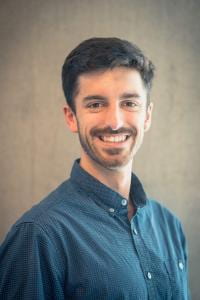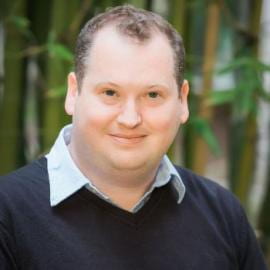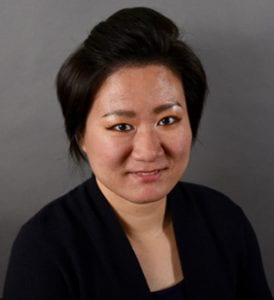Prof. Shannon Boettcher, director of CI2 and lead for electrochemical education
 Biography: Boettcher is a Professor in the Department of Chemistry and Biochemistry and a member of the Materials Science Institute at the University of Oregon. His research is at the intersection of electrochemistry and materials science, with a focus on fundamental aspects of energy conversion and storage. He has been named a DuPont Young Professor, a Cottrell Scholar, a Sloan Fellow, and a Camille Dreyfus Teacher-Scholar. He served as a Senior Editor for ACS Energy Letters. He founded the Oregon Center for Electrochemistry in Fall of 2019 and was named a Blavatnik National Award finalist (top 10 in Chemistry) in 2020.
Biography: Boettcher is a Professor in the Department of Chemistry and Biochemistry and a member of the Materials Science Institute at the University of Oregon. His research is at the intersection of electrochemistry and materials science, with a focus on fundamental aspects of energy conversion and storage. He has been named a DuPont Young Professor, a Cottrell Scholar, a Sloan Fellow, and a Camille Dreyfus Teacher-Scholar. He served as a Senior Editor for ACS Energy Letters. He founded the Oregon Center for Electrochemistry in Fall of 2019 and was named a Blavatnik National Award finalist (top 10 in Chemistry) in 2020.
web: http://boettcher.uoregon.edu
email: swb@uoregon.edu
Prof. Shane Ardo, lead for broadening participation
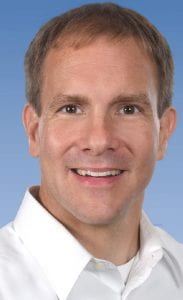
Biography: Ardo is an Associate Professor in the Department of Chemistry at UC Irvine. His research focuses on fundamental ionic and photo ionic processes as well as applications in clean water, carbon capture & solar energy. He has been named a Kavli Fellow, a Sloan Fellow, a Scialog Fellow, a Cottrell Scholar, and a Moore Inventor Fellow, and UC Early Career Innovator. Prof. Ardo was also a DOE Early Career Awardee and the PI on a RCSA seed grant to develop the STEM diversity pipeline in CI2.
web: https://www.chem.uci.edu/~ardo/group.html
email: ardo@uci.edu
Prof. Alex Segrè Cohen, lead for informal science education and science communication

Biography: Dr. Segrè Cohen’s interdisciplinary research is at the intersection of psychology, communication, critical reasoning, and decision-making about sustainability, the environment, and human health. Her overarching research goal is to translate science into action. In particular, she addresses questions about how science and technology are perceived and understood by the public, and the implications of these cognitive processes for how science is used to inform behavior and address polarizing policy issues such as climate change and pandemics. Prior to coming to UO, Alex served as the Director of Operations at the nonprofit, Our Climate Voices, where she was actively involved in the environmental justice movement, climate storytelling, and centering those at the forefront of climate crises. Alex was also a Science Assistant at the National Science Foundation.
web: https://journalism.uoregon.edu/directory/directory-faculty/all/asegreco
email: asegreco@uoregon.edu
Prof. Marco Giles, STEM diversity pipeline team
Biography: Giles is an Assistant Professor at Prairie View A&M University. He obtained his PhD in Chemistry in 2012 from Tulane University and is an organic and polymer chemist with extensive background in academic research and industrial laboratories. He is specifically expert in the synthesis of ion-chelating polymers and small molecules the team uses in IIT studies.
web: https://www.linkedin.com/in/marco-giles-0b916a15/
email: mdgiles@pvamu.edu
Prof. Paul Kempler, lead for industry partners and professional development
Biography: Kempler is a Research Assistant Professor and Associate Director of the Oregon Center for Electrochemistry. He completed his Ph.D. with Prof. Nathan Lewis at the California Institute of Technology in 2020 in Chemical Engineering, studying solar-fuels devices converting water, sunlight, and CO2 into hydrogen and hydrocarbons. His thesis investigated high-aspect-ratio features in light-absorbing semiconductors and electrocatalysts opportunities to improve solar fuels device performance. At Oregon, he has developed state-of-the-art electrochemical technology laboratory courses integrating advanced experiments with coding in Python. His current research interests include interfacial ion transfer, electrochemical stack design, and the interactions of industrial electrochemical processes with energy networks.
web: http://kempler.uoregon.edu
email: pkempler@uoregon.edu
Prof. Thomas Markland, lead for national lab partnerships, theory and computation
Biography: Markland is an Associate Professor of Chemistry at Stanford University. His work focuses on problems at the interface of quantum mechanics and statistical mechanics. His research frequently explores theories of hydrogen bonding, the interplay between structure and dynamics, systems with multiple time and length-scales, and quantum mechanical effects. Particular current interests include proton/ion and electron transfer in materials and enzymatic systems, atmospheric isotope separation, and the control of catalytic chemical reactivity in heterogeneous environments. He has received recognition in a number of awards, including a Research Corporation Cottrell Scholarship, Alfred P. Sloan Research Fellowship, Terman Fellowship, Hellman Faculty Scholarship, the ACS OpenEye Outstanding Junior Faculty Award, the NSF CAREER award, the Camille Dreyfus Teacher-Scholar award, the H&S Dean’s Award for Distinguished Teaching, the Kavli Emerging Leader in Chemistry Lectureship, and the ACS Early Career Award in Theoretical Chemistry.
web: https://chemistry.stanford.edu/people/thomas-markland
email: tmarkland@stanford.edu
Prof. Matthew Minus, STEM diversity pipeline team
Biography: Minus is an Assistant Professor at Prairie View A&M University in the Department of Chemistry. He earned his Ph.D. in Chemistry at Rice University in 2017 and performed his postdoctoral work at Southwestern University. He has been awarded an IRACDA Fellowship, the Harry B. Weiss Teaching Award, an NIH/NRSA Fellowship, and an NSF-AGEP Fellowship. He is an expert in applied organic and inorganic small-molecule synthesis. His team is targeting the synthesis of interfacial ion transfer catalysts in CI2.
web: https://www.linkedin.com/in/matthew-minus-ph-d-43b97691/
email: maminus@pvamu.edu
Prof. Niya Sa, STEM diversity pipeline team
Biography: Sa is an Assistant Professor at University of Massachusetts Boston in the Department of Chemistry. She received her Ph.D from Indiana University working on understanding fundamental ion transport phenomena in confined regime and worked in the Electrochemical Energy Storage Department at Argonne National Lab as a Postdoctoral Fellow designing and characterizing electrolytes and cathode materials for beyond lithium ion battery research. She uses electroanalytical tools to understand the interfacial interactions of energy storage materials, and in CI2 applies those techniques to study IIT at solid/liquid interfaces. Sa is also a winner of the prestigious NSF Career award for her research.
web: https://saniyabnu.wixsite.com/niyasa
email: niya.sa@umb.edu
Prof. Yogesh Surendranath, chief science advisor
Biography: Surendranath is an Associate Professor at Massachusetts Institute of Technology in the Department of Chemistry. His team develops and studies new methods for controlling the selectivity and efficiency of inner-sphere reactions problems via bottom-up, molecular-level engineering of functional inorganic interfaces with a focus on electrochemical energy conversion for chemical catalysis, energy storage and utilization, and environmental stewardship. Surendranath’s teaching, research, and innovation work has been recognized by a Presidential Early Career Award for Scientist and Engineers, the E. Bright Wilson Award, a Cottrell Scholar Award, a Sloan Research Fellowship, the Toyota Young Investigator Award, and the DOE Early Career Award, AFSOR Early Career Award, and the NSF Early Career Award, among others.
web: https://www.interphases.org/home/
email: yogi@mit.edu
Prof. Yixian Wang, STEM diversity pipeline team
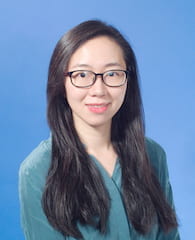
Biography: Wang is an Associate Professor California State University, Los Angeles, in the Department of Chemistry. Her team develops and studies new imaging and sensing tools for single entity analysis. She is particularly an expert in nanopipette measurements on ion-transfer reactions. Wang’s work has been recognized with a prestigious NSF Career award, among others.
web: https://www.calstatela.edu/faculty/dr-yixian-wang
email: ywang184@calstatela.edu
Dr. Judith Giordan, innovation lead

Biography: Giordan is the Managing Director with ecosVC and passionate about helping scientists and engineers transform their research into market validated solutions to meet the changes of people and the planet. She as 33 years of experience translating research to commercial opportunities, a former Fortune 100 executive, entrepreneur, and is a co-founder of the Chemical Angels Network. Giordan is also serving as the 2022 President-elect of the American Chemical Society, and then 2023 President.
web: https://www.ecosvc.com/judith; https://www.jgiordan.com/
email: judy@jgiordan.com

